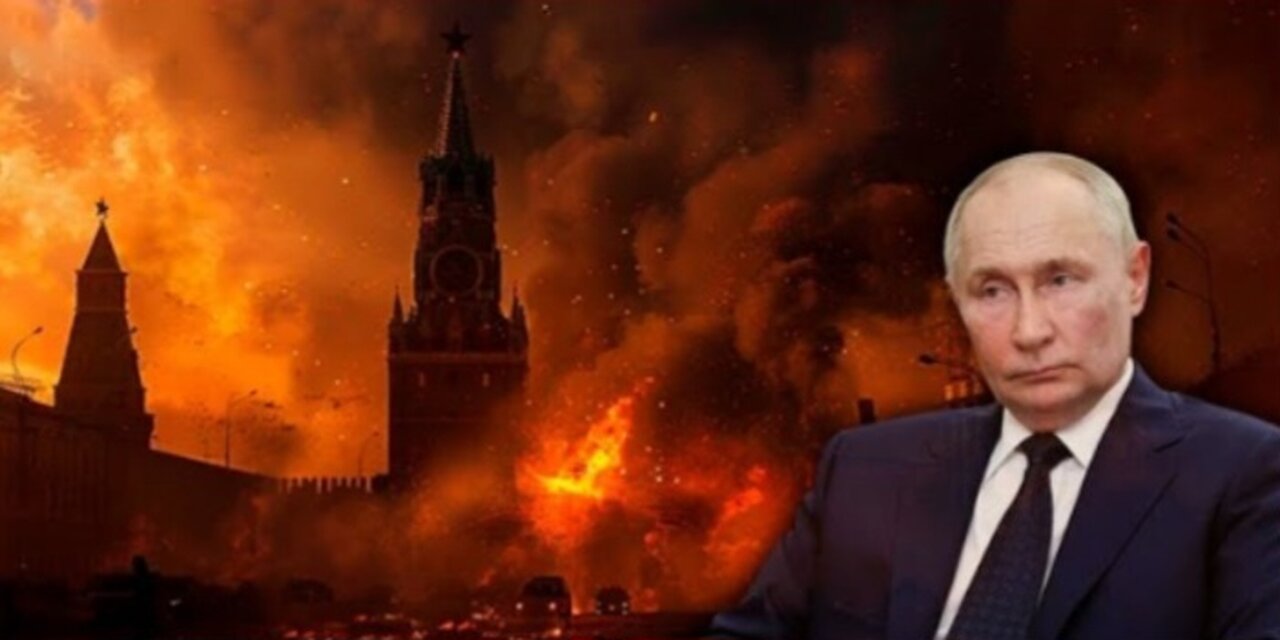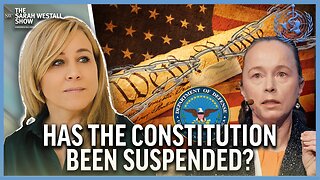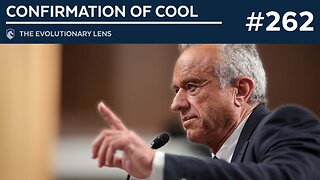Premium Only Content

Uprising will suddenly explode in Russia: CIA names Putin's weak points that will destroy country
Russian dictator Vladimir Putin is not afraid of war against Ukraine. But he has other weak points that highlight the fragility of his dictatorial regime. Retired senior CIA officer Po Kolbe expressed this opinion to Channel 24, noting that Putin has already lost his prestige in Syria. In addition, there are several internal factors in the aggressor country that concern the Russian dictator's entourage and the Russians themselves.
According to the retired senior CIA officer, the Kremlin's political failure can be considered the fall of Bashar al-Assad's regime in Syria. Russia invested billions of rubles in the power of this dictator and lost its prestige. During the support of the dictatorship in Syria, the Russians killed a huge number of Syrian civilians, tortured people and kept them in prison.
This highlights the fragility of the dictatorship. Dictators can exist for a long time because of the repression they use. A dictatorship may look strong on the outside, but it is rotten on the inside, Kolbe noted.
Putin has been in power since 1998, has a very narrow circle of people he trusts, and many enemies. The Russian dictator, according to a retired senior CIA officer, is afraid of Russians.
“So, the FSB is most focused on control, manipulation and subordination of the people. However, this does not mean that a popular uprising will suddenly explode in Russia,” he emphasized. Another important element is external pressure on the Kremlin. A similar situation occurred in Syria, when Assad could not receive sufficient support from Iran and Hezbollah. When the time came, Sunni soldiers did not want to fight for the Syrian dictator and fight for a corrupt regime.
“It reminded me of Yevgeny Prigozhin's march to Moscow. He passed checkpoint after checkpoint, and the Russian soldiers just stood there and did not defend Russia, they waited to see which way the wind would blow,” Kolbe added.
Russia has vulnerabilities that the West has simply not been exploiting. On the contrary, US incrementalism has helped the Kremlin offset and mask its weaknesses. The Kremlin’s weaknesses include its inability to rapidly pivot, dependence on others for Russia’s capability to sustain the war, and years of risk accumulation that Russian President Vladimir Putin is yet to reckon with. The Kremlin is vulnerable to an adversary who can generate momentum against Russia and deny the Kremlin opportunities to regroup and adapt.
-
 57:31
57:31
Candace Show Podcast
11 hours agoBREAKING! Taylor Swift Turns Against Blake Lively & Ryan Reynolds | Candace Ep 141
222K206 -
 1:04:59
1:04:59
Sarah Westall
8 hours agoRFK Jr Report, Constitution Suspended, War Time Procedures in Place, WHO Exit, DOD w/ Sasha Latypova
68.8K33 -
 1:56:37
1:56:37
Melonie Mac
12 hours agoGo Boom Live Ep 35!
61.5K15 -
 1:01:13
1:01:13
LFA TV
15 hours agoPRESIDENT TRUMP SIGNS LAKEN RILEY ACT | BASED AMERICA 1.29.25 6pm
68.5K8 -
 1:43:07
1:43:07
2 MIKES LIVE
9 hours ago2 MIKES LIVE #172 News Breakdown Wednesday!
35.4K2 -
 1:26:16
1:26:16
The Big Mig™
11 hours agoJ6’r Ryan Samsel Free At Last The BOP & DOJ Exposed
34.7K3 -
 31:34
31:34
The Based Mother
10 hours ago $2.11 earnedEXECUTIVE ORDER MUTILATES GENDER IDEOLOGY! Trump’s pulling out all the stops.
23.3K8 -
 1:05:44
1:05:44
The Amber May Show
1 day ago $1.67 earnedSaving The Innocence | Rescuing Children From Rape Trafficking | Alan Smyth
25.2K3 -
 1:40:46
1:40:46
In The Litter Box w/ Jewels & Catturd
1 day agoIs the Jab Poisonous? | In the Litter Box w/ Jewels & Catturd – Ep. 730 – 1/29/2025
91K56 -
 2:06:16
2:06:16
Darkhorse Podcast
14 hours agoConfirmation of Cool: The 262nd Evolutionary Lens with Bret Weinstein and Heather Heying
100K63